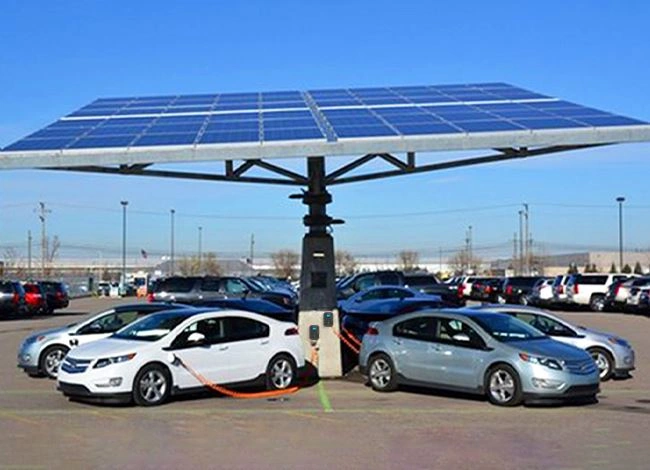Residential renewable electricity generation is starting to gain traction, with a growing number of people installing solar panels in the hope of reducing bills and their environmental footprint.
Solar panels represent one way that sustainable tech can be integrated into homes. Other examples include the installation of charging points for electric vehicles.
With governments around the world looking to phase-out the sale of diesel and gasoline vehicles and encourage consumers to buy electric, residential charging systems could become an integral part of the built environment in the years ahead.
Firms offering home-based, connected, charging include Pod Point and BP Pulse. Both of these services include apps which provide data such as how much energy has been used, the cost of charging and charge history.
Away from the private sector, governments are also making efforts to encourage the development of home charging infrastructure.
Over the weekend, U.K. authorities said the Electric Vehicle Home charge Scheme — which gives drivers as much as £350 (around $487) toward a charging system — would be extended and expanded, targeting those who live in leasehold and rented properties.
Mike Hawes, chief executive of the Society of Motor Manufacturers and Traders, described the government’s announcement as “welcome and a step in the right direction.”
“As we race towards the phase out of sales of new petrol and diesel cars and vans by 2030, we need to accelerate the expansion of the electric vehicle charging network,” he added.
“An electric vehicle revolution will need the home and workplace installations this announcement will encourage, but also a massive increase in on-street public charging and rapid charge points on our strategic road network.”

Post time: Jul-11-2022







